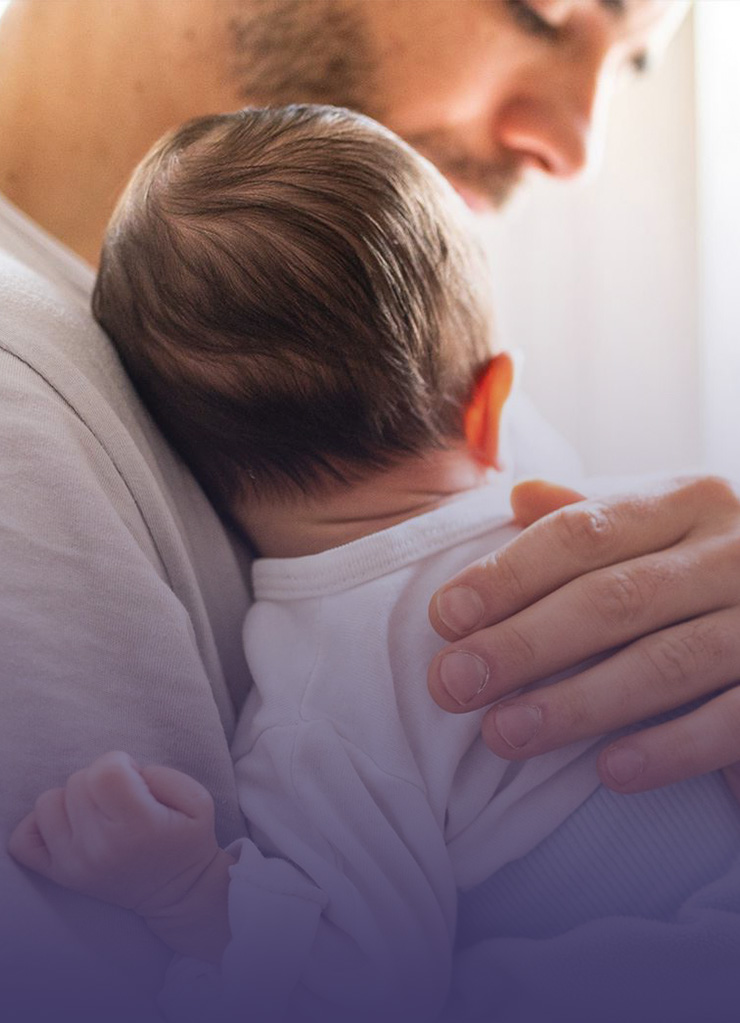
Seattle Spinal Cord Injury Lawyers for Paraplegia & Quadriplegia
Compassionate Legal Assistance for Families of Children with Spinal Cord Injuries
If your baby has suffered a paraplegia or quadriplegia spinal cord injury during birth, you may be struggling to understand how this happened and how to move forward. In some cases, your child’s injury may be a result of medical negligence or error, and it is important that you understand that you have the right to seek compensatory damages.
At Schroeter Goldmark & Bender, we can provide you with the compassionate legal support that your family needs at this difficult time. We understand the challenges you face in caring for your child’s medical needs while seeking justice for them through legal action. These diagnoses can mean a lifetime of healthcare costs, rehabilitation, and other therapies for your child. Our experienced birth injury attorneys will fight hard for you and your family to receive fair compensation.
Understanding Paraplegia and Quadriplegia: Key Insights
Paraplegia and quadriplegia are severe forms of paralysis that can arise from birth injuries, each with distinct characteristics and implications for a child's life. Paraplegia involves the loss of movement and sensation in the lower half of the body, usually affecting the legs and lower torso. Quadriplegia, also known as tetraplegia, is more extensive, impacting both the arms and legs as well as the torso, often due to spinal cord injuries sustained during birth.
These conditions can result in significant challenges to mobility and independence, necessitating lifelong medical interventions and adaptive technologies. Children with paraplegia or quadriplegia may require wheelchairs, specialized therapies, and assistance with daily activities, imposing a considerable financial burden on families.

Legal Support for Washington Families
We understand that every family’s story is unique, and our attorneys will take the time to get to know yours so we can best serve your needs. By taking an individualized approach, we can craft legal strategies that align with your goals and enable us to fight on behalf of your family more effectively. We understand how challenging these cases can be for parents and families, which is why it is important to have experienced attorneys on your side who can help you navigate the legal process while also providing moral support throughout this difficult journey.
Causes and Symptoms of Paraplegia & Quadriplegia Spinal Cord Injury
Paraplegia and quadriplegia are two types of spinal cord injuries that occur when there is damage to the nerve cells of the spine. Depending on the severity of the injury and location of the damage, these injuries can vary in symptoms and outcomes.
The most common negligent causes of paraplegia and quadriplegia include:
- Trauma to the spine during pregnancy or birth: This can happen if a baby is too large for an uncomplicated vaginal delivery, or if forceps/vacuum delivery is improperly used.
- Failure to diagnose: A doctor may fail to diagnose or treat a medical condition that affects the spine, resulting in a spinal cord injury.
Symptoms associated with paraplegia and quadriplegia include paralysis below the affected area (paraplegia) or paralysis throughout all four limbs (quadriplegia). Other issues related to these injuries include loss of sensation in some areas, bladder/bowl control problems, chronic pain, muscle stiffness, and mobility limitations. The exact symptoms will depend on where along the spine the injury occurred as well as its severity.
Treatment Options for Paraplegia & Quadriplegia Spinal Cord Injury
If your child has a paraplegia or quadriplegia spinal cord injury, there are some treatment options available to help them manage their condition.
The most common treatments include:
- Physical therapy: This helps strengthen muscles and improve coordination, flexibility and balance. It can also help with pain relief.
- Surgery: Depending on the location of the injury, surgery may be necessary to repair damaged nerves or vertebrae in the spine.
- Medications: Pain medications can help reduce discomfort while other medications may be used to treat bladder/bowel control issues as well as any infections that develop as a result of the injury.
- Assistive devices: Wheelchairs, walkers and other assistive technology can make it easier for your child to move around independently if they have lost mobility due to their injury.
- Rehabilitation programs: These are designed to address all areas affected by your child's spinal cord injury including physical, mental, and emotional issues that they may be facing due to their diagnosis.
